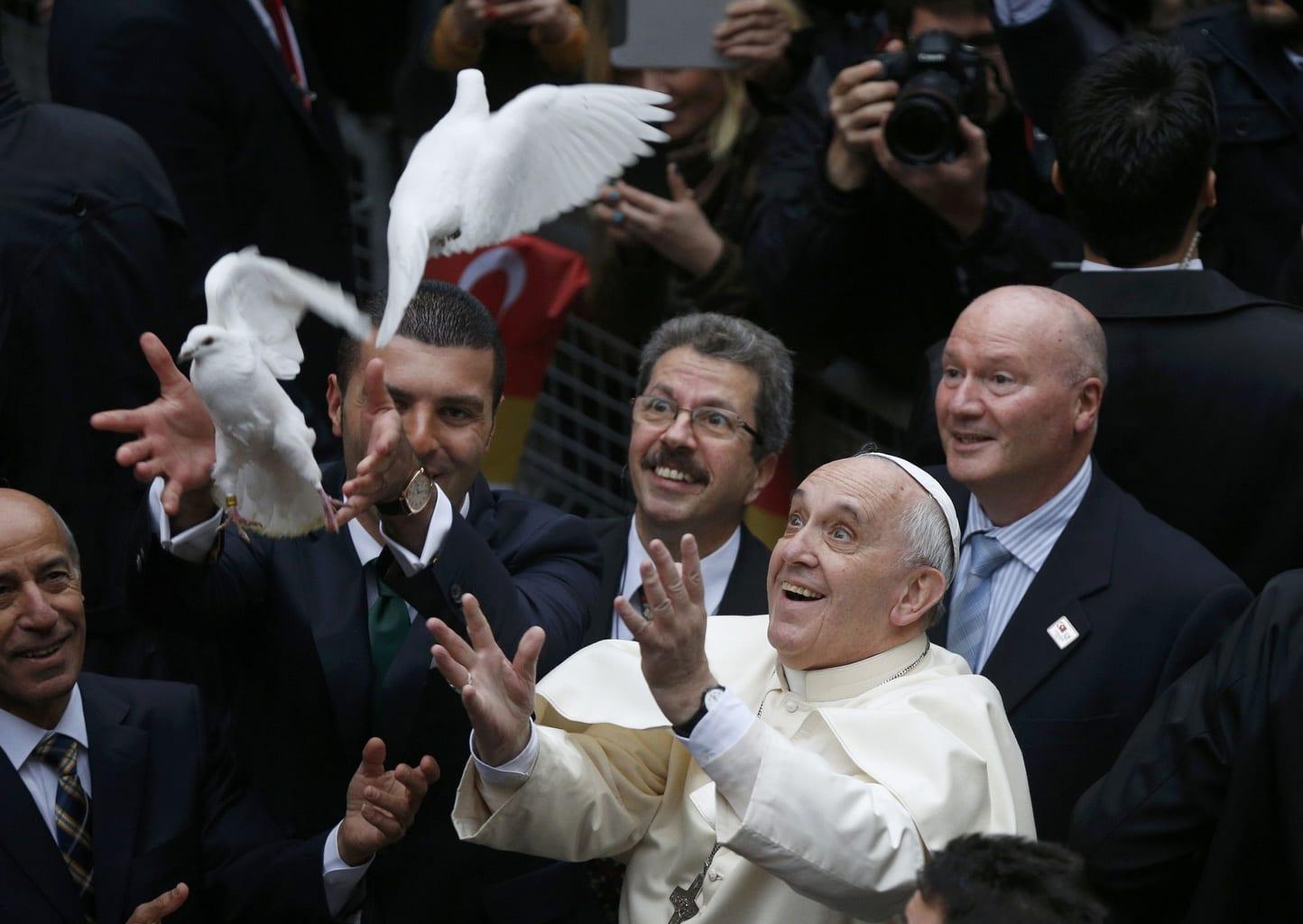ROME— On the heels of yet another violent weekend marred by terrorist attacks in Egypt, Turkey, Nigeria, Yemen and Somalia, with 130 people killed and hundreds wounded, the Vatican released Pope Francis’s message for the 50th Church-sponsored World Day of Peace, yearly held on January 1.
“We know that this ‘piecemeal’ violence, of different kinds and levels, causes great suffering: wars in different countries and continents; terrorism, organized crime and unforeseen acts of violence; the abuses suffered by migrants and victims of human trafficking; and the devastation of the environment,” Francis wrote.
“Where does this lead?” he asked.
The Argentine pontiff has spoken of a “horrifying world war, fought piecemeal” since the beginning of his pontificate, and he did so again in the message released on Monday, under the theme of “Nonviolence: A style of politics for peace.”
Francis’s message is an appeal for charity and nonviolence to “govern how we treat each other as individuals, within society and in international life,” arguing that when victims of violence are able to resist the urge to retaliate “they become the most credible promoters of nonviolent peacemaking.”
Although acknowledging that it’s unclear if the world is more or less violent than in the 20th century, or simply more aware of violence thanks to modern means of communications, the pontiff argued that in either case, society has become “increasingly inured to it.”
In the message, a yearly occurrence since 1968, Francis once again pleads for disarmament and the abolition of nuclear weapons, arguing that nuclear deterrence and the threat of mutual assured destruction are incapable of grounding an ethics of “fraternity and peaceful coexistence between individuals and among peoples.”
Such an ethics, he writes, cannot be based “on the logic of fear, violence and closed-mindedness, but on responsibility, respect and sincere dialogue.”
With equal urgency, he pleaded “for an end to domestic violence and to the abuse of women and children.”
Quoting his predecessor, emeritus Pope Benedict XVI, Francis also writes that being true followers of Jesus today includes embracing his teaching on nonviolence.
That teaching, the German pope said at an Angelus prayer in 2007, “is realistic because it takes into account that in the world there is too much violence, too much injustice, and therefore that this situation cannot be overcome except by countering it with more love, with more goodness.”
“This ‘more,’” Benedict said, “comes from God.”
Once again taking the words of his predecessor, Francis writes that for Christians, nonviolence is not tactical behavior but “a way of being,” the attitude of someone who’s convinced of God’s love, which frees them from the “fear” of tackling evil “with the weapons of love and truth alone.”
“Love of one’s enemy constitutes the nucleus of the ‘Christian revolution,’” he writes, saying that Jesus’s call to respond to evil with good is rightly considered “the Magna Carta of Christian nonviolence.”
As is often the case in these messages, the four-page document was full of praise for leaders known for their commitment to non-violence: From St. Mother Theresa of Calcutta and St. John Paul II, to Martin Luther King Jr., Mahatma Ghandi and Abdul Ghaffar Khan, a 19th century Pashtun independence activist who opposed British colonialism with non-violence.
“Women in particular are often leaders of nonviolence,” Francis writes, quoting the case of Leymah Gbowee and thousands of other Liberian women who organized pray-ins and nonviolent protest that resulted in high-level peace talks to end the second civil war in Liberia.
At a time when violence-related news is often linked to religious extremism, Francis also said that efforts on behalf of victims and injustice are not a legacy exclusive to the Church, but of many religious traditions.
“I emphatically reaffirm that ‘no religion is terrorist.’ Violence profanes the name of God,” he writes.
In the message, Francis claims that the politics of nonviolence has its roots in the family, describing it as the “indispensable crucible in which spouses, parents and children, brothers and sisters, learn to communicate and to show generous concern for one another, and in which frictions and even conflicts have to be resolved not by force but by dialogue, respect, concern for the good of the other, mercy and forgiveness.”
Ironically, the quote comes from his own document on the family, Amoris Laetitia, released in March after a two-year consultation from bishops from around the world, which has produced some of the loudest debate and public spats between bishops and leading Catholic thinkers in recent decades.
“The politics of nonviolence have to begin in the home, and then spread to the entire human family,” Francis writes.
The pontiff closed his message, signed as is customary on December 8, the feast of the Immaculate Conception, with a prayer to the Virgin Mary, “Queen of Peace.”













